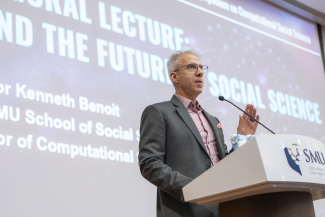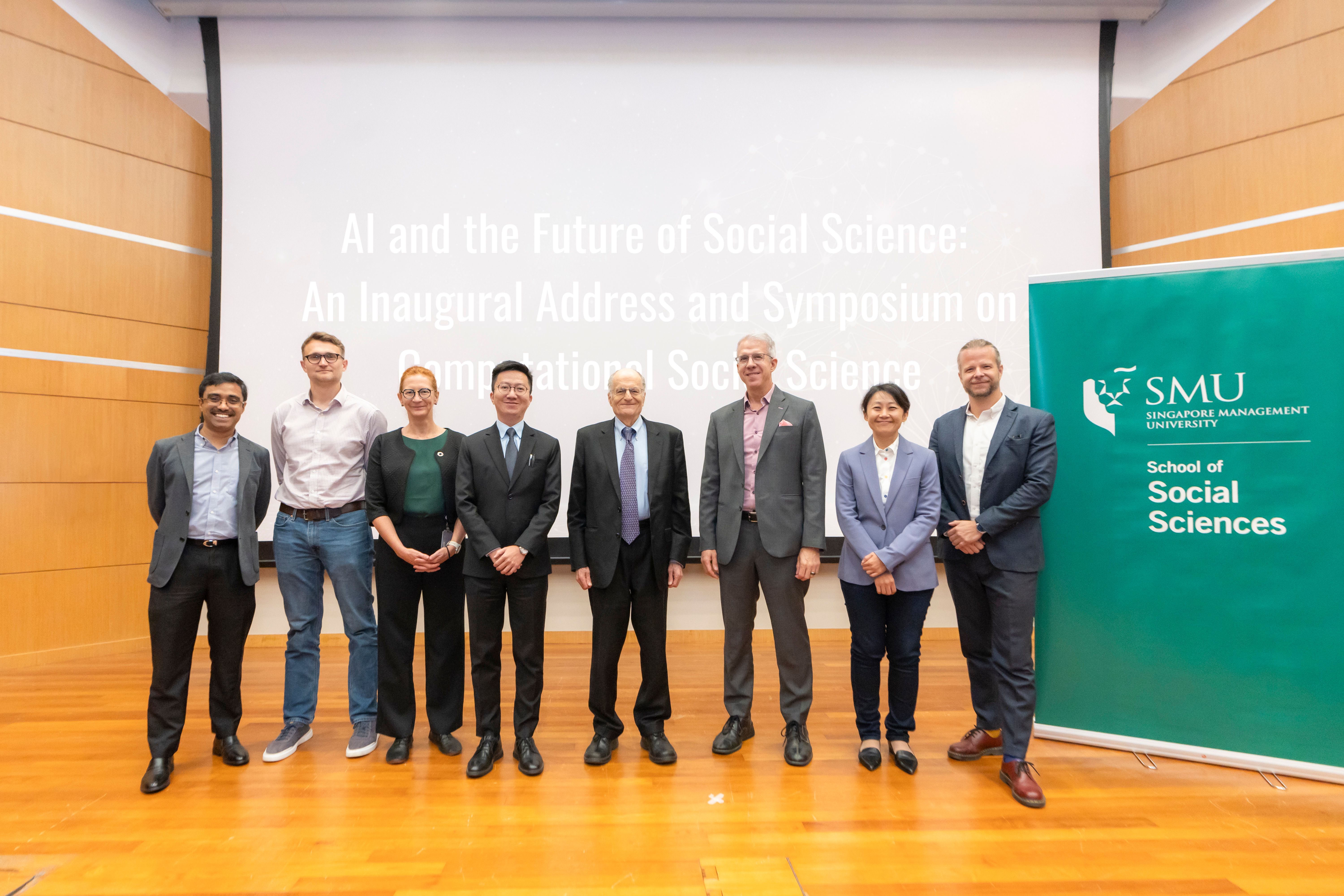
As artificial intelligence (AI) rapidly shifts from a tool to a creative and cognitive medium, the social sciences are emerging as an essential compass to navigate its profound implications. This was the central message from the symposium "AI and the Future of Social Science", hosted by the Singapore Management University’s (SMU) School of Social Sciences.
Featuring thought leaders from academia, government, and industry, the event explored how generative AI and emerging forms of generative artificial intelligence are reshaping how knowledge is created, taught, and applied.
“AI is increasingly central to scientific, emotional and the creative domains, said Mr Peter Ho, Chairman of the Social Science Research Council. "If it becomes the primary medium for producing knowledge and art, then arguably, there is a risk that AI-generated content could become the future default standard of intelligence and creativity," he cautioned. He also advised that society must question whose values and assumptions are embedded in those systems.

In her welcome address, Professor Lily Kong, President of SMU noted AI’s shift from a tool of efficiency towards a catalyst for transformation that “reshapes how we understand human behaviour, how we govern societies and how we educate future generations.” She called for a reimagining of the social sciences and pushed researchers to rethink their roles in knowledge production, their methodologies and their engagement with technology.

The symposium also marked the inaugural lecture of Professor Kenneth Benoit, SMU’s Dean of the School of Social Sciences and Professor of Computational Social Science. Prof Benoit argued that while AI may simply accelerate methods in more technical disciplines such as economics, it could fundamentally redefine interpretative, humanistic fields like sociology and philosophy.
“AI isn’t just transforming how we conduct research, it’s forcing us to rethink what counts as scholarship,” he said. “For social sciences, this is not just an evolution. It’s a potential paradigm shift.”
He identified three areas of change:
- Knowledge transmission: As AI rewires the classroom, learning risks becoming outcome-focused rather than inquiry-driven.
- Knowledge production: AI now generates qualitative content, raising questions about authenticity and originality.
- Knowledge application: Trust and reflexivity are critical, especially as AI systems lack real-world grounding and may reinforce bias.
Other sessions spotlighted AI’s paradoxical role in sustainability, with speakers like Ms Nikki Kemp (Singapore Green Finance Centre) and Professor Slava Jankin (University of Birmingham) discussing how AI helps model climate risks while also contributing to rising global carbon emissions.

In an ending keynote, Professor Thomas Sargent, W.R Berkley Professor of Economics and Business at New York University and Nobel Laureate in Economic Sciences (2011), underscored AI’s cognitive roots, likening modern machine learning to historical breakthroughs in pattern recognition and theory-building. Yet he warned of its limits: “AI, so far, is really good at detecting and organising patterns with some clever guidance," Prof Sargent noted. "But it struggles to infer rules of the game." This limitation suggests that while AI may transform certain aspects of social sciences, human insight remains essential for developing structural understanding.

Throughout the symposium, a recurring theme emerged: the social sciences are not merely observers of AI’s rise, they are critical architects of how it should be understood, governed, and used. As Prof Benoit summarised, “AI can answer many questions. But only humans, and disciplines like the social sciences, can decide which questions matter.”
